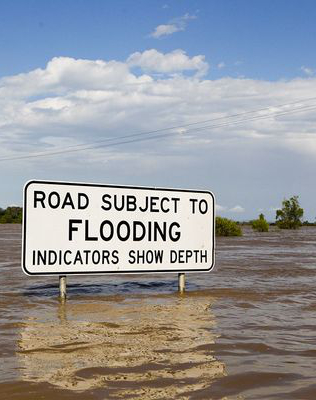Cross-tier talks on disaster funds launched
 The Federal Government wants to talk with the States and Territories about faults in funding arrangements for disaster recovery.
The Federal Government wants to talk with the States and Territories about faults in funding arrangements for disaster recovery.
Both the Productivity Commission (PC) and the Australian National Audit Office (ANAO) say the current system is broken.
The Productivity Commission said the arrangements were “not efficient, equitable or sustainable” in a recent report, and that funding was “prone to cost shifting, ad hoc responses and short-term political opportunism”.
“Groundhog Day anecdotes abound,” the Commission said, where State and Territory Governments “overinvest in post-disaster reconstruction and under-invest in mitigation that would limit the impact of natural disasters in the first place”.
“As such, natural disaster costs have become a growing, unfunded liability for governments.”
Along these lines, a National Audit Office report has called for a “more robust framework to govern the provision of financial assistance” and the need for “stronger controls” from Emergency Management Australia (EMA).
Justice Minister Michael Keenan says he will undertake consultations with State, Territory and Local Governments with a view to finding better funding arrangements.
“The Productivity Commission report also raises a number of issues - including the need for better land use planning, and improved risk data and information sharing - which should be carefully considered by State and Local Governments,” Mr Keenan said.
“The Australian Government is not proposing any radical reductions in the funding support it provides to the States,” he said.
“Instead we will seek to pursue a more modest and gradual approach to getting the balance of mitigation and recovery funding right, in close consultation with State Governments.”
The Minister has hinted that the mitigation funding would be used to ensure disaster-prone regions could finally address their greatest risks.
“We also see merit in an upfront disaster funding system where the Australian Government provides grants to States based on an early assessment of disaster damage and impact, rather than the current system of reimbursing costs based on detailed rules,” he said.








 Print
Print